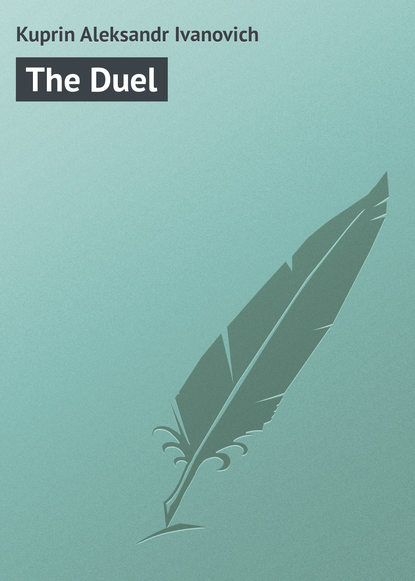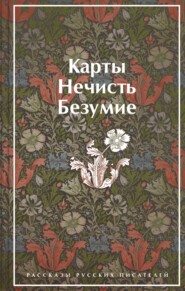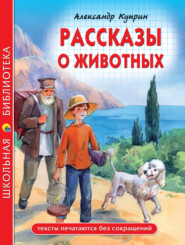По всем вопросам обращайтесь на: info@litportal.ru
(©) 2003-2025.
✖
The Duel
Настройки чтения
Размер шрифта
Высота строк
Поля
After Romashov had answered a few questions of minor importance the examination was declared closed. Nevertheless, he had on two occasions to give the court supplementary information, first in the evening of the same day, and then again on the day following, viz., Thursday morning. However careless and inexperienced Romashov might be in all the practical circumstances of life, he nevertheless saw soon enough that the court was performing its functions in the most negligent and indiscreet way, and had therefore been guilty, not only of a revolting lack of tact, but also of utter illegality. In defiance of Section 149 of the “Statute concerning Discipline,” by which every communication to unauthorized persons of what takes place at such examinations is in plain language strictly forbidden, the members of the “Court of Honour” did not scruple to relate everything straight off to their wives and relations. The latter spread the scandal still further among the other ladies of “Society,” who in their turn discussed the matter with their maidservants, charwomen, etc. Before twenty-four hours had elapsed Romashov was the talk of the entire town and “hero of the day.” When he passed along the street he was gazed at from windows and doors, between the hedge-posts of backyards, and from the vantage of garden-bushes and arbours. Women from a good distance off pointed at him with their finger, and he often heard his name whispered behind his back. Nobody in the town doubted that a duel between him and Nikoläiev was inevitable – nay, they even began to bet about the upshot of it.
As Romashov was passing Lykatschev’s house on Thursday morning he suddenly heard his name shouted.
“Yuri Alexievich, Yuri Alexievich, come here.”
Romashov stopped, and soon discovered Katya Lykatschev standing on a bench inside the fence. She was still in morning dress, which chiefly consisted of a kimono, the triangular arrangement of which in front left the delicate virginal neck wholly exposed. And she was altogether so fresh and rosy that for an instant Romashov even felt light at heart.
Katya leant over the fence to enable Romashov to reach her hand, which was still cool and moist from the morning bath. She began at once to chatter and lisp at her usual pace:
“Where have you been all this time? You ought to be ashamed of yourself, forgetting your friends in that way! Zoi, zoi, zoi– hush! I have long known everything, everything.” She stared at Romashov with great terror-stricken eyes. “Take this and hang it round your throat. Hear and obey at once. Look, if you please.”
From the fold of her kimono, straight from her bosom, she drew out an amulet that hung by a silk cord, and shyly put it into Romashov’s hand. The amulet still felt balmy from its nest against the young woman’s warm body.
“Will it help?” asked Romashov, in a jesting tone. “What is it?”
“That’s a secret, and don’t you dare to laugh, you ungodly creature. Zoi, zoi!”
“Hang it, if I’m not beginning to be a man of note,” thought Romashov, as he said good-bye to Katya. “Splendid girl!” But he could not prevent himself, though it might be for the last time, from thinking of himself in the third person:
“And over the old warrior’s rugged features stole a melancholy smile.”
On that same evening he and Nikoläiev were again summoned to the Court. The two enemies stood before the green table almost side by side. They did not once look at each other, but they equally felt each other’s high-strung emotion, and were, in consequence, still more excited. Their eyes were fixed, as though by magnetism, on the president’s face when he at last began to read the verdict of the Court.
“The members of the Officers’ Court of Honour of the – th Regiment” (here followed their Christian and surnames in full), “under the presidency of Lieutenant-Colonel Migunov, have inquired into the matter of the fight, in the mess, between Lieutenant Nikoläiev and Sub-lieutenant Romashov, and the Court, by reason of the serious nature of the case, finds a duel is necessary to satisfy the wounded honour of the regiment. This decree of the Court is ratified by the commander of the regiment.”
Lieutenant-Colonel Migunov took off his spectacles, and replaced them in their case.
“It is incumbent on you, gentlemen,” he went on to say in a sepulchral voice, “to choose two seconds apiece, who are to meet here at 9 p.m. to agree as to the conditions of the duel. Moreover,” added Migunov, as he got up and put his spectaclecase in his back-pocket, “moreover, I must tell you that the verdict just read possesses only a conditionally binding force on you, viz. it rests in your free discretion either to submit to the decree of the Court or” – Migunov paused and made a gesture by which he meant to express his absolute indifference – “leave the regiment. You ought, gentlemen, to keep apart. However, one thing more. Not in my capacity as president of the Court, but as an old comrade, I must advise you, gentlemen, for the avoidance of further unpleasantness and complications prior to the duel, not to visit the mess. Au revoir.”
Nikoläiev made a sharp, military “Face-about,” and walked with rapid steps out of the room. Romashov followed slowly after. He had no fear, but he felt at once utterly lonely, abandoned, and shut off from the entire world. When he reached the steps he gazed for some time, calm and astonished, at the sky, the trees, a cow grazing on the other side of the fence, the sparrows burrowing in the high road, and thought, “So everything lives, struggles, and worries about its existence, except myself. I require nothing and I have no interests. I am doomed; I am alone, and dead already to this world.”
With a feeling of sickness and disgust he went to find Biek-Agamalov and Viätkin, whom he had chosen for his seconds. Both granted his request; Biek-Agamalov with a gloomy, solemn countenance, Viätkin with many hearty handshakes.
It was impossible for Romashov to return home.
Never had the thought of his uncomfortable abode seemed so repulsive to him as at the present moment. In these gloomy hours of spiritual depression, abandonment, and weariness of life, he needed a trusty, intelligent, and sympathetic friend – a man with brains and heart.
Then he thought of Nasanski.
XXI
NASANSKI was, as always, at home. He had only just awakened from a heavy sleep following intoxication, and was lying on his back with only his underclothing on and his hands under his head. In his troubled eyes might be read sickness of life and physical weariness. His face had not yet lost its sleepy and lifeless expression when Romashov, stooping over his friend, said in a troubled and uncertain voice —
“Good-day, Vasili Nilich. Perhaps I have come at an inconvenient time?”
“Good-day,” replied Nasanski, in a hoarse and weak voice. “Any news? Sit down.”
He offered Romashov his hot, clammy hand, but looked at him, not as at a dear and ever-welcome friend, but as it were a troublous dream-picture that still lingered after his drunken sleep.
“Aren’t you well?” asked Romashov shyly, as he threw himself down on the corner of the bed. “In that case I’ll go at once, I won’t disturb you.”
Nasanski lifted his head a couple of inches from the pillow, and by an effort he peered, with deeply puckered forehead, at Romashov.
“No – wait. Oh, how my head aches! Listen, Georgi Alexievich. I see that something unusual has happened. If I could only collect my thoughts! What is it?”
Romashov looked at him with silent pity. Nasanski’s whole appearance had undergone a terrible change since the two friends had last seen each other. His eyes were sunken and surrounded by black rings; his temples had a yellow hue; the rough, wrinkled skin over his cheek-bones hung limply down, and was partly concealed by the sticky, wet tufts of hair that drooped.
“Nothing particular. I only wanted to see you. To-morrow I am to fight a duel with Nikoläiev, and I was loath to go home. But nothing matters now. Au revoir. You see – I had nobody else to talk to and my heart is heavy.”
Nasanski closed his eyes, and his features made a still more painful impression. It was evident that he had, by a really abnormal effort of will, tried to recover consciousness, and now, when he opened his eyes, a spark of keen understanding was at last visible in his glance.
“Well, well, I’ll tell you what we’ll do – ” Nasanski turned on his side by an effort and raised himself on his elbow. “But first give me – out of the cupboard, you know – No, let the apples be – there should be a few peppermint drops – thanks, my friend. I’ll tell you what we’ll do – Faugh, how disgusting! Take me out into the fresh air. Here it’s intolerable. Always the same hideous hallucinations. Come with me; we’ll get a boat, then we can chat. Will you?”
With a stern face, and an expression of utter loathing on his countenance, he drained glass after glass. Romashov observed Nasanski’s ashy complexion gradually assume a deeper hue, and his beautiful blue eyes regain life and brilliancy.
When they reached the street they took a fly and drove to the river flowing past the very outskirts of the town, which there swells out to a dam, on one side of which stood a mill driven by turbines, an enormous red building belonging to a Jew. On the other shore stood a few bathing-houses, and there, too, boats might be hired. Romashov sat by the oars, and Nasanski assumed a half-recumbent position in the stern.
The river was very broad here, the stream weak, the banks low and overgrown with long, juicy grass that hung down over the water, and out of it rose tall green reeds and masses of big, white water-lilies.
Romashov related the particulars of his fight with Nikoläiev. Nasanski listened abstractedly and gazed down at the river, which in lazy, sluggish eddies flowed away like molten glass in the wake of the boat.
“Tell me candidly, Romashov, have you any fear?” asked Nasanski, in a low voice.
“Of the duel? No, I’m not afraid of that,” replied Romashov irritably, but he became abruptly silent, whilst, in the flash of a second, he saw himself standing face to face with Nikoläiev, and with hypnotized eyes gazing at the black, threatening muzzle of his revolver. “No, no,” added Romashov hastily, “I will not lie and boast that I’m not afraid. On the contrary, I think it terrible; but I also know that I shall not behave like a coward, and that I shall never apologize.”
Nasanski dipped the tips of his fingers in the softly rippling water, warm with the evening glow, and said slowly, in a weak voice often interrupted by coughing:
“Ah, my friend, my dear Romashov, why will you do this thing? Only think if what you say is true, and you are not a coward. Why not then show your moral courage in a still higher degree by refusing to fight this duel?”
“He has insulted me, struck me – on the face,” replied Romashov, with newly kindled, burning indignation.
“Well, admitting that,” resumed Nasanski gently, with his tender, sorrowful eyes fixed on Romashov, “what does that signify? Time heals all wounds; everything in the world is buried and disappears, even the recollection of this scandal. You yourself will in time forget both your hatred and your sufferings; but you’ll never forget a man you have killed. He will stand ever at your side, at the head of your bed, at your dinner-table, when you are alone, and when you are amidst the bustle of the world. Empty-heads, idiots, pretentious imitators and parrots will, of course, at all times solemnly assure you that a murder in the course of a duel is no murder. What madmen! No, a murder is, and always will be, a murder. And the most horrible thing about it is not in death and suffering, in pools of blood or in corpses, but inasmuch as it deprives a human being of the joys of life. Oh, how priceless is life!” exclaimed Nasanski suddenly, in a high voice and with tears in his eyes. “Who do you suppose believes in the reality of an existence after this one? Not you, or I, or any other man of sound reason. Therefore death is feared by all. Only half-demented, ecstatic barbarians or ‘the foolish in the Lord’ allow themselves to be deluded into the notion that they will be greeted on the other side of the grave, in the garden of Paradise, by the beatific hymns of celestial eunuchs. Moreover, we have those who, silently despising such old wives’ fables and puerilities, cross the threshold of death. Others again picture the empire of the grave as a cold, dark, bare room. No, my friend, there is no such future state. In death there is neither cold, nor darkness, nor space, nor even fear – nothing but absolute annihilation.”
Romashov shipped his oars, and it was only by observing the green shore gently stealing by that one could tell that the boat was moving onwards.
“Yes – annihilation,” Romashov repeated slowly, in a dreamy tone.
“But why cudgel your brains over this? Gaze instead at the living landscape around you. How exquisite is life!” shouted Nasanski, with a powerful and eloquent gesture. “Oh, thou beauty of the Godhead – thou infinite beauty! Look at this blue sky, this calm and silent water, and you will tremble with joy and rapture. Look at yon water-mill far in the distance, softly moving its sails. Look at the fresh verdure of the bank and the mischievous play of the sunbeams on the water. How wonderfully lovely and peaceful is all this!” Nasanski suddenly buried his face in his hands and burst out weeping; but he recovered his self-possession immediately, and, without any shame for his tears, he went on to say, while looking at Romashov with moist, glistening eyes:
“No, even if I were to fall under the railway train, and were left lying on the line with broken and bleeding limbs, and any one were to ask me if life were beautiful, I should none the less, and even by summoning my last remains of strength, answer enthusiastically, ‘Ah, yes, even now life is glorious.’ How much joy does not sight alone give us, and so, too, music, the scent of flowers, and woman’s love? And then the human understanding: thought which alone is our life’s golden sun – the eternal source of noble pleasure and imperishable bliss. Yurochka – pardon me calling you so, my friend” – Nasanski held out his trembling hand to Romashov as though entreating forgiveness – “suppose you were shut up in prison, and you were doomed all your life to stare at crumbling bricks of the wall of your cell – no, let us suppose that in your prison dungeon there never penetrated a ray of light or a sound from the outer world. Well, what more? What would that be in comparison with all the mysterious terrors of death? Yet if thought, memory, imagination, the spirit’s faculty of creation remained, you would not only be able to live, but even find moments of enthusiasm and the joy of life.”
“Yes, life is priceless,” exclaimed Romashov, interrupting him.
“It’s magnificent,” Nasanski went on to say hotly, “yet people wish two rational creatures to kill each other for a woman’s sake, or to re-establish their so-called honour! But who is it then he kills? – this miserable living clod of earth that arrogates to himself the proud name of man? Is it himself or his neighbour? No, he kills the gracious warmth and lifegiving sun, the bright sky, and all nature with its infinite beauty and charm. He kills that which never, never, never will return. Oh, what madmen!”
Nasanski ceased, shook his head sorrowfully, and collapsed. The boat glided into the reeds. Romashov again took the oars. High, hard, green stalks bowed slowly and gravely, gently scraping the boat’s gunwale. Amid the tall rushes there was shade and coolness.
“What shall I do?” asked Romashov, scowling and angry. “Shall I enter the reserves? Where shall I go?”

















